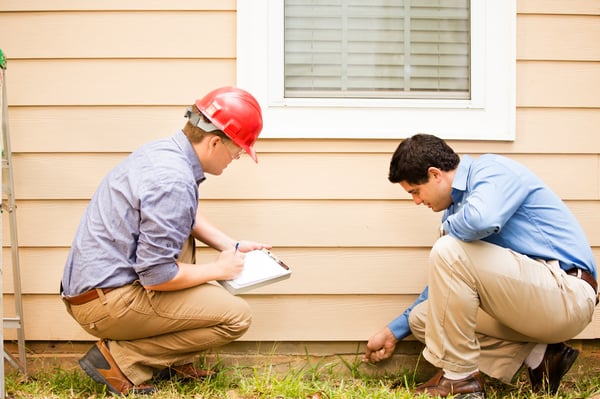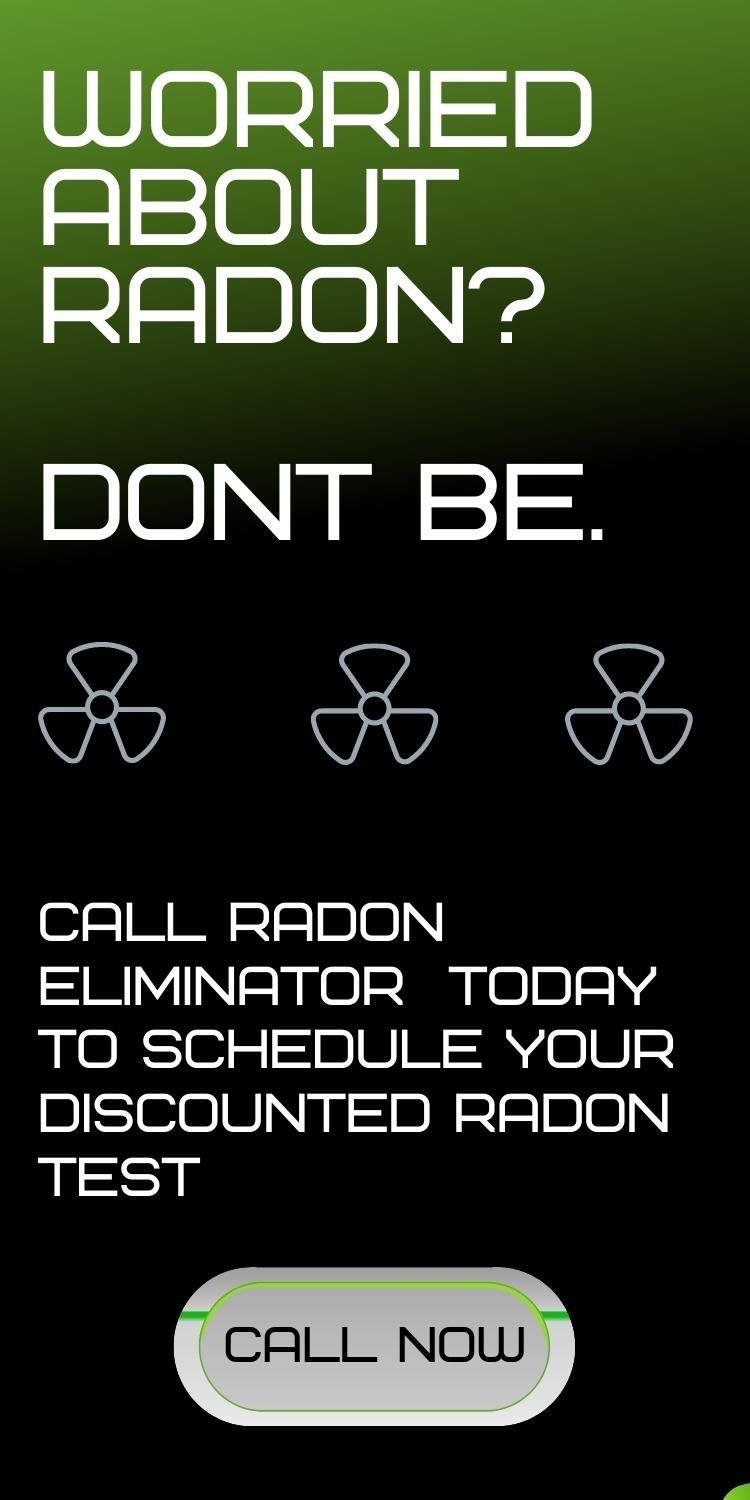Buying a new house can be stressful and exciting at the same time.
When picking out your new home, you have to check a lot of boxes, and you have to be sure the house you choose is in good shape structurally and that it doesn't harbor any hazards, like radon gas.
You might not know what radon is, but if you're buying a new home, radon should be on your radar.
Radon is a dangerous gas that can cause serious health problems that is present in about 1 out of every 15 homes in the U.S.
But, the presence of radon in a house doesn't have to be a deal-breaker.
In the article below, we will talk about several things every home buyer should know about radon.
Table of Contents
- What Is Radon?
- Why Should I Be Concerned?
- What Questions Should You Ask About Radon When Buying A Home?
- Radon Testing
- What Happens if the Test Reveals Radon?
- How Does Radon Mitigation Work?
- Are There Future Radon Risks to Consider?
- Radon in New Construction
- Hire A Professional Radon Mitigation Company
- Contact Radon Eliminator
What Is Radon?
Radon is a radioactive, odorless, tasteless, invisible gas that can cause health issues and even death if inhaled in large quantities.
And according to the Surgeon General, radon exposure is the second leading cause of lung cancer, trailing only smoking.
Radon is the result of the breakdown of uranium in the soil, water, and rocks.
Once it breaks down, the gas is released into the air.
Once it's in the air, it can slip through cracks in the foundation of your home and get trapped inside, forcing you to breathe in air with high levels of radon every day for years without ever knowing it.
Why Should I Be Concerned?
Radon inhaled outside is relatively harmless because it can't accumulate at high enough levels to cause damage.
But when it's trapped indoors, it can become concentrated in high levels, enough to put anyone breathing the air inside at risk of lung cancer.
Concerned you may have developed lung cancer from radon? Read our blog post: "The Signs and Symptoms of Lung Cancer."
We measure radon in picocuries per liter (pCi/L), and the EPA recommends that all homes keep their radon levels under 4 picocuries per liter.
If your home has levels greater than that, you need to look into radon mitigation.
Radon is heavier than air, so it tends to settle in basements and crawl spaces.
However, HVAC systems tend to distribute radon gas throughout the entire house, making every level of your home unsafe.
What Questions Should You Ask About Radon When Buying A Home?
When you're thinking of buying a home, ask if it's been tested for radon recently.
If it has, ask to see the results. If it hasn't, see if they will perform a radon test.
Radon is found all over the country, but if you live in the Northeast, Midwest, southern Appalachia, or the northern Plains, your home is more likely to have elevated levels.
In these areas of the country, it is very common for homebuyers to ask the sellers to test the home if it hasn't already been done.
Sometimes it can be a contingency of the purchase contract.
Your home inspector may be able to test for radon when they evaluate the house, but you might need to call in a radon specialist to gauge the home's radon levels.

Radon Testing
How exactly does radon testing work?
Long-term tests are preferred, but radon testing in real estate usually involves a short term test, usually 48-hours.
Some real estate inspectors will use continuous radon monitors, electric radon devices, or passive radon test kits.
You can expect accurate results with any of these devices.
Be sure the person performing the test knows what they are doing so you can be sure proper procedures are followed and you get an accurate radon level reading.
It's never a bad idea to hire a radon specialist for this.
There is no "safe" level of radon, but to be hazardous, radon levels must be 4 pCi/L or higher.
What Happens if the Test Reveals Radon?
If your test results aren't good and the home you'd like to buy has high radon levels, the buyer and seller could share the cost of mitigation.
If your contract doesn't specify who pays for radon, you have every right to ask the seller to at least split the cost.
Most sellers are willing to do so to help push the sale through.
Mitigation costs will vary, but you can expect it to run between $800 and $2,500.
How Does Radon Mitigation Work?
Mitigation will reduce radon levels, but it typically won't completely eliminate them, which is fine because levels under 4pCi/L are considered safe.
Radon mitigation systems work to prevent radon from entering a house and remove existing radon from the home.
To prevent radon from entering the home, you should seal the areas where it could seep in, including cracks in the foundation and walls.
A mitigation system consists of a pipe installed below the basement to collect radon gas and release it above the home.
Ventilation fans can also be used to circulate radon-heavy air to the outside of the home.
Are There Future Radon Risks to Consider?
So you've had the home of your dreams tested for radon, and everything checked out okay.
But, that doesn't necessarily mean you're set for life.
If the home happens to shift or settle in the future, a tiny crack in the foundation could allow radon to enter your home without you knowing.
To be sure you stay safe, you can install radon detectors on the lower levels of your home.
The detectors will alert you if your home levels begin to rise, so you can test your home properly and start the mitigation process if necessary.
Radon in New Construction
If you're building your house from scratch, you could be able to request that the property have radon-resistant features installed.
These radon-resistant features could include gas-permeable barriers in the floors, sheeting in crawl spaces, or a full-blown reduction system.
Hire A Professional Radon Mitigation Company
If there is radon found in the home you're going to buy, make sure you are the one who chooses who installs the radon reduction system.
Sellers often want the quickest and cheapest option, not the best.
If you're able to determine who completes the work, you can be sure you get a quality radon mitigation system installed by professionals who know what they are doing.
Always make sure your radon contractor is certified and licensed, get them to describe exactly what they are offering you, and get an on-site quote.
Get quotes from several companies, and remember that the cheapest isn't always the best.
Most companies will offer warranties, but be sure to read the fine print and be sure it covers reduction.
And since you are about to purchase your dream house, ask the company how the mitigation system will look.
Some companies will install a mitigation system with no regard for aesthetics that will stick out like a sore thumb.
Other companies, though, will take the time to hide your mitigation system or customize it so it matches the exterior of your home.
Contact Radon Eliminator
If you're ready to buy a new house, make sure you get it tested first.
Knowing the air quality of the home you are about to move into will give you peace of mind and leave you breathing a little easier.
To test your potential home for radon, contact Radon Eliminator.
Radon Eliminator will test your home for radon. If your results come back high, they will install a radon mitigation system to make your new home safe to live in.
Click the button below to schedule your Discounted Test today, and be sure you and your family aren't being exposed to radon.





